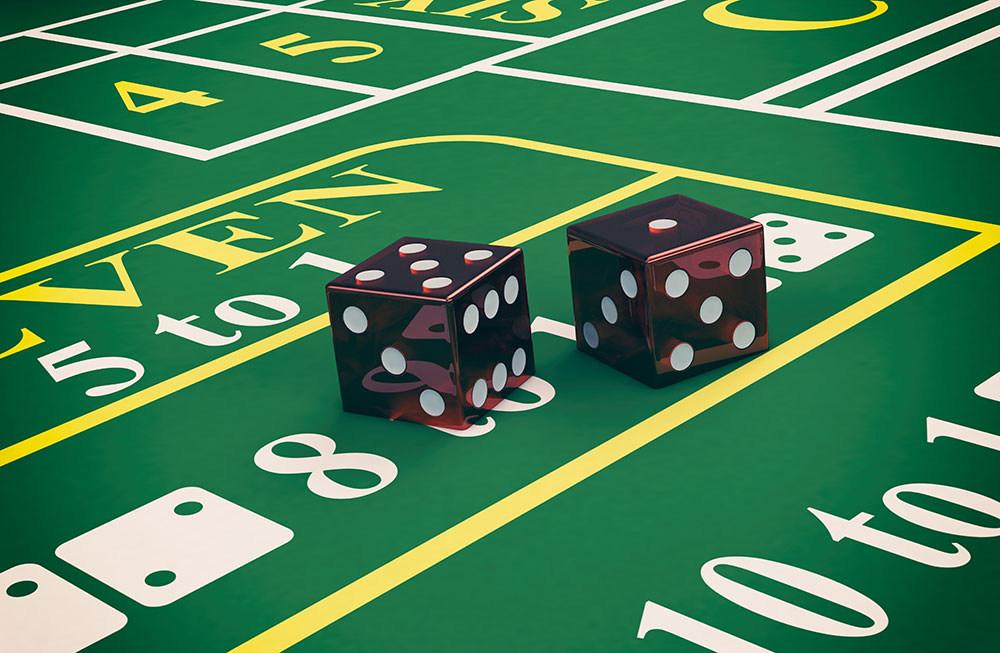Introduction
What Is A Marker In Gambling: A marker in gambling is a convenient financial tool offered by casinos to their players. It acts as a line of credit that enables players to access funds while they engage in gambling activities without the need for carrying large amounts of cash. By obtaining a marker, players can have immediate access to funds within the casino, allowing them to place bets, play games, and enjoy the various offerings without the hassle of frequent cash transactions.
We will explore the concept of markers in gambling, how they work, and the implications they have for both players and casinos. We will delve into the process of obtaining a marker, the responsibilities and obligations associated with it, as well as the potential risks and considerations that come with using this form of credit in a gambling setting.
Markers offer convenience and flexibility for players, particularly those who prefer not to carry large sums of cash or who wish to streamline their gambling experience. However, it’s important to understand the implications of utilizing markers, including the repayment terms, interest rates, and potential consequences for failure to repay the marker on time.
Join us as we delve into the world of gambling markers, exploring the benefits, risks, and everything you need to know about this financial tool in the realm of gambling. Understanding markers will empower you to make informed decisions and navigate the world of gambling credit responsibly.

How do gambling markers work?
Casino markers are short-term, interest-free lines of credit that gaming establishments offer customers to use for gambling. Players are expected to repay these interest-free loans quickly, typically within 30 days.
Gambling markers, also known as casino markers or casino credit, are a form of short-term loan provided by casinos to players. They serve as a convenient way for players to access funds while gambling without the need for carrying large amounts of cash.
When a player requests a gambling marker, the casino evaluates their creditworthiness based on factors such as their gambling history, credit score, and financial stability. If approved, the casino extends a line of credit to the player, allowing them to draw funds against it during their gambling session.
Once the marker is issued, the player receives the approved credit amount in the form of chips or a voucher. They can use these funds for gambling activities within the casino, such as playing table games, slot machines, or other casino offerings.
Repayment of the marker is typically expected within a specific time frame, often ranging from a few days to a few weeks. The casino may require the player to settle the outstanding balance before leaving the premises or provide alternative arrangements for repayment.
It’s important to note that gambling markers are a form of debt, and failure to repay them can have serious consequences. Casinos may pursue legal action, report the unpaid debt to credit agencies, and restrict the player’s future access to credit.
If you are considering using a gambling marker, it’s crucial to understand the terms and conditions, including the interest rates, repayment schedule, and any associated fees. Responsible gambling practices dictate using markers only if you have the means to repay the debt in a timely manner.
What is a mark in gambling?
The Mark (also known as the Spot or the Sucker) is the player at a poker table who attracts much attention, largely due to his/her inexperience and lack of skill. The term is commonly used when good players are determining a good table to play at.
In the context of gambling, a “mark” refers to an individual who is seen as an easy target for exploitation or manipulation by professional gamblers or scam artists. The term is often used to describe someone who is perceived as gullible, inexperienced, or lacking knowledge about the games or the gambling environment.
Marks are often targeted by individuals who aim to take advantage of their vulnerabilities and win money through deceptive tactics. These tactics can include cheating, hustling, or manipulating the mark’s emotions to gain an advantage.
Professional gamblers or hustlers may identify marks based on various factors such as their behavior, body language, or the way they handle their bets. Marks may exhibit signs of naivety, overconfidence, or a lack of understanding of the odds or strategies involved in the games they are playing.
Once identified, the hustler may employ tactics such as offering false advice, creating distractions, or manipulating the outcome of the game to exploit the mark and extract money from them. The mark may be led to believe that they have a chance to win or that they possess special insider knowledge, but ultimately, they end up losing money.
It’s important to note that gambling marks are not limited to novice players. Even experienced gamblers can fall victim to scams or be targeted by skilled hustlers. Therefore, it’s crucial for all players to remain vigilant, educated about the games they play, and aware of the potential risks and scams that exist within the gambling environment.
What are lucky numbers in gambling?
Most experts think that the reason why the number 7 is considered “lucky” is simply because of its many positive associations. Obviously, there’s no concrete proof that the number has any real influence when it comes to scoring big at the casino or regarding anything else in life, for that matter.
Lucky numbers in gambling are numbers that hold personal significance or are believed to bring good fortune to a player. These numbers are often chosen based on cultural, superstitious, or personal beliefs. While luck is inherently unpredictable and subjective, many individuals find comfort and confidence in playing their lucky numbers in hopes of a positive outcome.
Lucky numbers can vary greatly from person to person. Some people may have specific numbers that hold personal significance, such as birthdays, anniversaries, or other meaningful dates. Others may rely on traditional lucky numbers derived from cultural or religious beliefs, such as the number seven in Western cultures or the number eight in Chinese culture, which is associated with wealth and prosperity.
In addition to personal or cultural beliefs, lucky numbers may also be influenced by superstitions or rituals. Some players may follow certain patterns or sequences when choosing their numbers, while others may rely on a “lucky charm” or a specific routine before placing their bets.
It’s important to note that luck is purely subjective and has no influence on the outcome of a gambling game, which is ultimately determined by random chance or skill. While playing lucky numbers can enhance the enjoyment and personal connection to the game, it’s essential to approach gambling with a responsible mindset and understand that luck alone cannot guarantee success.
Ultimately, whether or not lucky numbers bring fortune in gambling is a matter of personal belief and interpretation. What matters most is maintaining a balanced and responsible approach to gambling and enjoying the experience regardless of the outcome.
What does 7 mean in gambling?
It can be seen in other sports, as well. If the spread is set at +7, this means that to cover, the underdog must either win the game outright or lose by fewer than seven points. For the favorite to cover, they must win by more than seven points.
In gambling, the number 7 holds significant meaning and is often considered a lucky number. It has a rich history and is associated with positive outcomes and favorable odds in various games.
One reason for the prominence of the number 7 is its prevalence in dice games. Traditional six-sided dice feature the numbers 1 to 6, and 7 is the sum of the highest and lowest numbers on a standard die. This has led to the perception of 7 as a lucky number, symbolizing a favorable outcome when rolled.
In casino games like craps, the number 7 is central to the gameplay. Rolling a 7 on the come-out roll in craps is considered fortunate and results in a win for the shooter. Conversely, rolling a 7 after establishing a point is seen as unlucky, as it ends the shooter’s turn.
Additionally, the number 7 holds cultural significance in various societies. It is often associated with positive attributes such as luck, completeness, and spiritual significance. This cultural symbolism has extended to the gambling world, where players may choose to bet on or favor the number 7 based on these beliefs.
However, it’s important to note that the concept of lucky numbers is subjective and based on personal beliefs and superstitions. While some players may consider 7 as lucky, others may have different lucky numbers or no belief in lucky numbers at all. Ultimately, the outcome of gambling games is determined by random chance, and luck alone cannot guarantee success.

What does 5 points mean in gambling?
Giving points refers to the favorite in sports betting, which is the opposite of taking (receiving) points. For example, if you bet the Bears as a -6.5 point favorite against the Lions, it means you’re “giving six points” to the other team, as in the Lions are starting the game up 6-0.
In the context of gambling, the term “5 points” does not have a specific or universally recognized meaning. It is not a commonly used term or term of significance in the gambling industry. Therefore, it’s important to note that the interpretation of “5 points” in gambling can vary depending on the specific context or game being played.
It’s possible that “5 points” could refer to a specific scoring system or rule in a particular game, but without further information, it is difficult to determine its exact meaning. Each game has its own rules and scoring systems, and the term “5 points” would need to be defined within the context of that game.
It’s worth noting that when it comes to gambling terminology, there are certain terms and phrases that have established meanings, such as “point spread” in sports betting or “five-card draw” in poker. However, “5 points” is not commonly used in this way and may be specific to a particular game or local gambling slang.
To fully understand the meaning of “5 points” in gambling, it would be necessary to provide more information about the specific game, context, or rules in which it is being used.
How does a gambling marker work and what is its purpose?
A gambling marker is a financial tool provided by casinos to allow players to access funds while gambling. When a player requests a marker, the casino evaluates their creditworthiness based on factors such as their gambling history, financial standing, and reputation. If approved, the player is granted a line of credit, which acts as a short-term loan from the casino.
The marker allows the player to gamble without the need for cash transactions. Instead, they can use the funds provided by the marker for bets, chips, or other casino expenses. The marker amount is typically determined by the casino, based on the player’s creditworthiness and the established limits.
The purpose of a gambling marker is to enhance the convenience and flexibility of the gambling experience. Players can avoid carrying large sums of cash and enjoy a streamlined betting process. Markers can be particularly appealing to high rollers or players who prefer not to carry significant amounts of cash with them.
Once the player has finished gambling, they are required to settle their marker balance. This typically involves repaying the borrowed funds to the casino within a specified timeframe, often ranging from a few days to a few weeks. Failure to repay the marker on time may result in penalties, interest charges, or even legal consequences, depending on the jurisdiction and the specific terms of the marker agreement.
It’s important to note that obtaining a gambling marker should be approached with responsibility and careful consideration. Players should only request a marker if they are confident in their ability to repay the debt within the agreed-upon timeframe to avoid potential financial and legal complications.
What are the benefits and potential risks of using a marker in gambling?
Using a marker in gambling offers several benefits, but it also comes with potential risks that players should be aware of. Here are the benefits and risks associated with using a marker:
Benefits:
1. Convenience: Markers provide a convenient way to access funds while gambling without the need for carrying large amounts of cash. It simplifies the betting process and allows players to focus on enjoying the games.
2. Streamlined Experience: With a marker, players can seamlessly move between different games and activities within the casino without the hassle of cash transactions. It enhances the overall gambling experience and saves time.
3. Security: Carrying significant amounts of cash can be risky. Using a marker reduces the risk of loss or theft since funds are accessed digitally within the casino environment. It provides a more secure way to gamble.
Risks:
1. Debt Accumulation: A major risk of using a marker is the potential for accumulating debt. Players must exercise discipline and only borrow within their means. Failure to repay the marker can result in financial difficulties and damage to credit history.
2. Interest and Fees: Casinos may charge interest on outstanding marker balances. The interest rates can be high, increasing the cost of borrowing. Late payment or non-payment may also lead to additional fees and penalties.
3. Impulsive Gambling: Easy access to funds through a marker can tempt players to engage in impulsive or excessive gambling. This can lead to financial losses and gambling-related problems if not controlled responsibly.
It’s crucial for players to understand the terms and conditions associated with using a marker, including repayment obligations, interest rates, and penalties. Responsible gambling practices, such as setting limits and budgeting, are essential to mitigate the risks and ensure a positive gambling experience.
What responsibilities and obligations come with obtaining a gambling marker?
Obtaining a gambling marker comes with specific responsibilities and obligations that players must adhere to. Here are the key responsibilities and obligations associated with using a gambling marker:
1. Repayment: The primary responsibility of a player who obtains a gambling marker is to repay the borrowed funds within the agreed-upon timeframe. The repayment terms are typically outlined in the marker agreement, specifying the due date, payment methods, and any applicable fees or interest charges.
2. Creditworthiness: Players have the obligation to maintain a good credit reputation with the casino. This includes promptly repaying markers, avoiding defaults, and demonstrating responsible gambling behavior. Failure to meet these obligations may impact future credit approvals and relationships with the casino.
3. Financial Management: Players are responsible for managing their finances and using the marker funds prudently. It is essential to exercise self-control, avoid excessive gambling, and borrow within one’s means. Players should have a clear plan for repayment and ensure they have the necessary funds available before obtaining a marker.
4. Compliance with Casino Policies: Players must comply with all casino policies and regulations related to marker usage. This includes adhering to betting limits, following game rules, and respecting casino etiquette. Any violation of these policies may result in penalties or potential loss of marker privileges.
5. Legal Consequences: Failure to fulfill the obligations associated with a gambling marker can have legal ramifications. Casinos have the right to pursue legal action to recover outstanding debts, which may result in financial judgments or damage to credit records.
It is crucial for players to fully understand their responsibilities and obligations before obtaining a gambling marker. Responsible gambling practices, effective financial management, and open communication with the casino can help ensure a positive and accountable gambling experience.

Conclusion
A marker in gambling serves as a valuable financial instrument that provides players with the convenience of accessing funds while engaging in casino activities. It eliminates the need for carrying large amounts of cash and streamlines the gambling experience by offering immediate credit within the casino environment.
Markers offer flexibility and ease of use, allowing players to focus on enjoying their favorite games without the hassle of frequent cash transactions. They provide a sense of convenience and security, especially for those who prefer not to carry substantial amounts of cash or who wish to have a line of credit readily available.
However, it’s essential to approach markers with caution and responsibility. Players must fully understand the terms and conditions associated with obtaining and using a marker, including repayment terms, interest rates, and potential penalties for non-compliance. Responsible gambling practices dictate using markers only if you have the means to repay the debt in a timely manner.
Casinos also have a responsibility to ensure that markers are provided to creditworthy individuals and to establish appropriate measures for repayment. They must adhere to regulatory guidelines and protect the interests of both the casino and the players.
Markers can enhance the gambling experience by providing a convenient and secure way to access funds. However, it’s crucial to exercise prudence and responsible financial management when utilizing this form of credit. By understanding the implications and obligations that come with markers, players can enjoy their gambling activities responsibly and make informed decisions that contribute to an enjoyable and controlled gambling experience.









